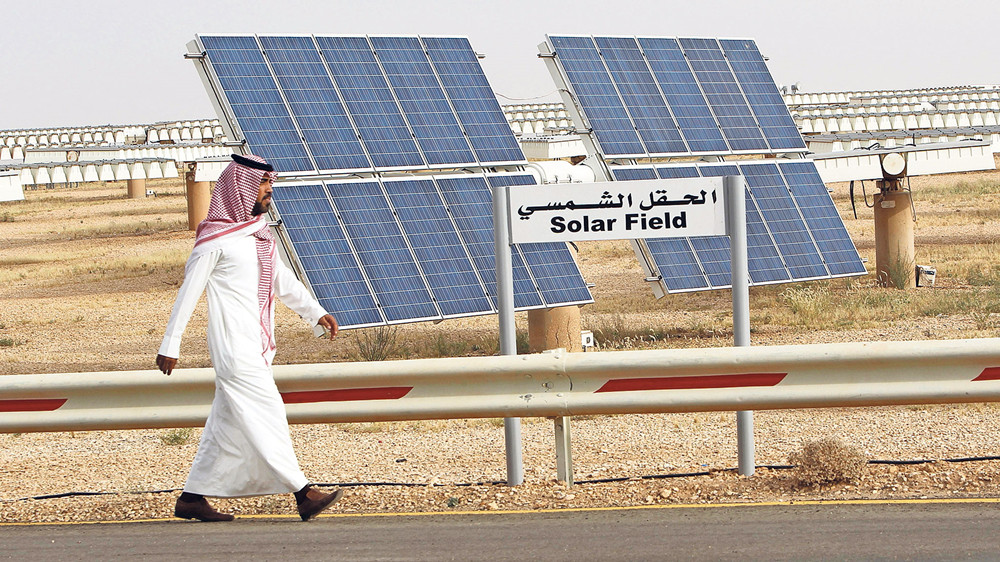
Saudi Arabia has awarded contracts for two new solar projects with a combined capacity of one gigawatt as the kingdom continues to add renewable energy to its power mix.
Saudi Power Procurement Company, the principal buyer and manager of power in the kingdom, signed two deals including power purchase agreements (PPAs) for the projects worth 2.5 billion riyals ($665 million) with the winning consortiums, the Ministry of Energy said in a statement carried by the Saudi Press Agency.
The SPPC signed a PPA for the 700-megawatt Ar Rass Solar photovoltaic independent power project with Ar Rass Solar Energy Company – an entity led by Saudi Arabia’s Acwa Power. The project is valued at 1.7bn riyals and is located in the Qassim region of the kingdom.
It also signed a PPA for the 300-megawatt Saad Solar PV IPP project with a consortium led by Jinko Power. The project is located in the Saad area within the country’s Riyadh region, and is valued at about 800m riyals.
The award of these projects represents “another successful milestone” in delivering the National Renewable Energy Programme targets and is “a testament to the commitment of the kingdom to reduce energy related emissions”, Energy Minister Prince Abdulaziz bin Salman said.
These are also “practical steps” towards achieving the strategic goals of Saudi Arabia's Vision 2030 for the energy ecosystem, he said.
In its quest to reach “the optimal energy mix”, the kingdom aims to develop more renewable energy projects with total capacity of about 15 gigawatts this year and in 2023, he said.
Crude-exporting countries in the GCC are increasingly turning to renewables to slash emissions and diversify their energy sources.
Saudi Arabia, the world's largest oil exporter, aims to add 60 gigawatts of solar power to its national grid by 2030. In December, it announced plans to invest more than $100bn in renewable energy projects.
The world has added more than 260 gigawatts of renewable energy capacity in 2020, exceeding 2019 figures by about 50 per cent, according to the International Renewable Energy Agency.
More than 80 per cent of all new electricity capacity was renewable, with solar and wind accounting for 91 per cent, Irena said.
The new clean energy projects in Saudi Arabia will help in “displacing” liquid fuel with renewables and gas in the generation of electricity in the kingdom.
“Harnessing renewable energy is an essential part of the endeavour to reach the optimal energy mix”, Prince Abdulaziz said.
Saudi Arabia aims to replace about 1 million barrels of crude used to generate power by 2030, with renewables and gas expected to account for 50 per cent each, he said.